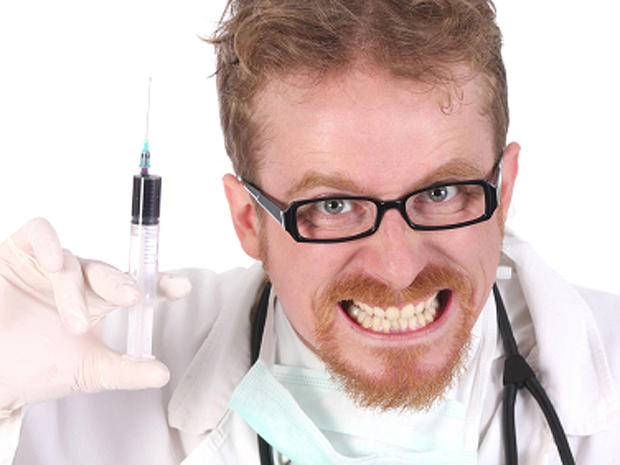hCG diet fad has experts worrying about risks
(CBS) Does it work? Is it safe? Those are the sorts of questions being asked about the so-called hCG diet that's been getting lots of attention in recent weeks.
The hCG diet combines extreme calorie restriction - typically 500 calories a day of unprocessed organic foods - with daily doses of a pregnancy-related hormone called human chorionic gondatropin, a.k.a. hCG. The hormone is typically administered via injections or under-the-tongue drops.
The diet isn't approved by the FDA, and it doesn't come cheap. One month of syringes and hormone can run more than a thousand dollars, the New York Times reported.
Proponents of the diet say patients can lose up to a pound a day without feeling tired or hungry. And, they insist, people on the diet can lose fat in typically diet-resistant places, like the belly, upper arms, and thighs.
Opponents say those claims are largely unproven and say the injections can be risky. They insist that any weight loss comes primarily from the near-starvation eating plan.
But try telling that to the doctors who claim to have seen the diet in action.
"Physicians all around the country have seen people losing a tremendous amount of weight with this stuff, and you cannot afford to ignore that." Dr. Lionel Bissoon, a New York City-based weight-loss specialist, told the Times.
Other experts find that kind of anecdotal evidence less than compelling.
"I would not suggest taking that to help people lose weight," Dr. Sam Klein, professor of medicine and nutritional science at Washington University in St. Louis, told St. Louis' KSDK news. "Of course if you eat 500 calories a day, you'll lose weight. The question is does hCG allow you to stick to that diet more effectively than not taking hCG, and the randomized controlled trials - all the scientific data - suggests that's not the case."
Decades of research seem to suggest that people who diet by consuming only 500 calories a day typically regain most or all of the weight once the diet ends. And some experts are also leery of the hCG diet's potential to cause health problems. Eating less than 500 calories a day can make it hard to meet daily nutritional goals, forcing the body to burn muscle tissue instead of fat, according to WebMD. And Dr. Oz says on his website that people on the diet can experience hair loss and constipation and develop gallstones - a painful condition that often requires surgery.
But there's widespread agreement among doctors as to which diet out there is best:
The one you stick with.
